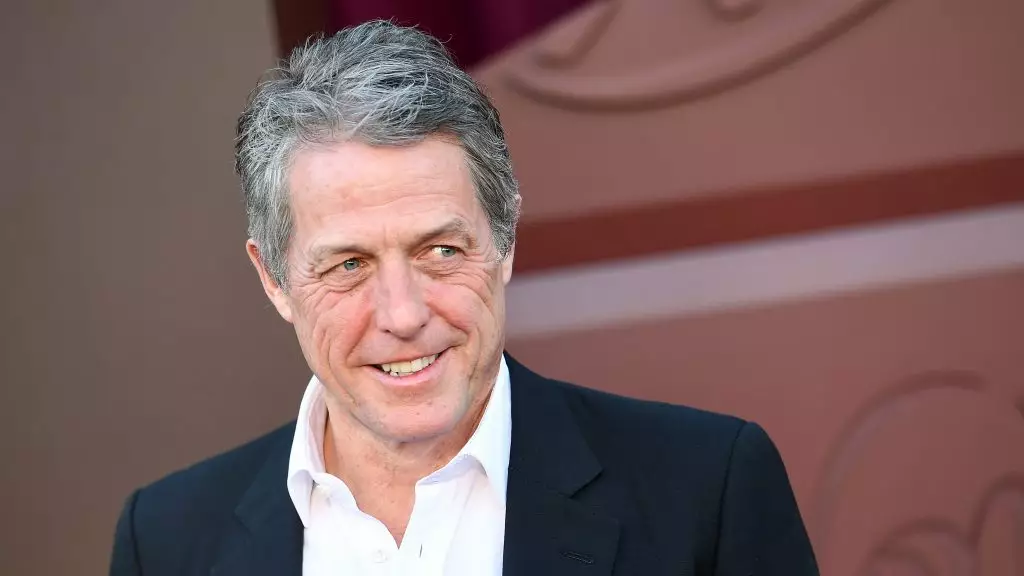Hugh Grant, a familiar face in the rom-com genre, has navigated through a career that has known both triumphs and pitfalls. In recent interviews, Grant attributed a significant renaissance in his career to the visionary work of the Wachowski siblings, particularly their ambitious 2012 project, *Cloud Atlas*. This film marked a pivotal moment for Grant, who candidly reflected on feeling “completely marooned” after the commercial failure of *Did You Hear About the Morgans?*. His open acknowledgment of such vulnerability offers insight into the often tumultuous landscape of an actor’s career in Hollywood.
In *Cloud Atlas*, Grant tackled six diverse roles, showcasing a spectrum of characters that deviated from the romantic leads that had previously defined his career. Grant’s musings on the nature of these opportunities demonstrate an intriguing perspective on the industry’s demands. He acknowledged that he might have only been offered these roles out of a desire to include “recognizable names” to attract international audiences, hinting at the often transactional nature of film casting. This revelation invites discussion about how market forces can influence artistic decisions, often to the detriment of true creative expression.
Despite the criticism that surrounded the film, particularly with the casting controversies linking white actors to roles of East Asian characters, Grant found joy in the complexity of the antagonistic roles he portrayed. The multifaceted characters allowed him to return to his roots—his early career was defined by creating caricatures, using humor to connect with audiences, a stark contrast to the romantic hero persona he adopted later. This shift suggests that Grant not only cherishes the multifarious nature of acting but also recognizes the importance of depth and nuance within character development.
Interestingly, Grant remarked on the evolution of his roles, transitioning from heartthrob to villain. He articulated a desire for characters that possess a more profound emotional core—a “quivering jelly” beneath the surface that adds depth rather than relying solely on clichéd villainy. This commentary strings together themes of authenticity and the necessity for complexity in film characters, echoing a broader cultural shift towards more nuanced storytelling. In an age where audiences crave substance over style, Grant’s insight points to the reality that engaging performances often lie in the intricacies of character rather than the mere archetypes of good versus evil.
Grant’s selection process for roles further underscores his commitment to quality filmmaking. His candidness regarding the projects he has turned down due to perceived corporate interference highlights the often undue influence that studios can exert over creative processes. This choice reflects a desire not just for artistic freedom but also for integrity in the storytelling process. His approach to discussing creative collaboration with directors, revealed through direct questioning, showcases an actor still deeply invested in the integrity of the projects he associates with.
In this context, Grant represents a refreshing shift in mindset among established actors who have the luxury to be selective about their roles. His willingness to engage critically with the filmmaking process emphasizes the importance of supporting independent creative visionaries in an industry increasingly controlled by corporate interests. It raises pressing questions about the future of cinema amid the push for box office returns versus the pursuit of innovative storytelling.
As Grant continues to reinvent himself, his career trajectory serves as a testament to resilience and adaptability in the performing arts. This phase of his career is not merely characterized by embracing villainous roles, but rather by a full-circle return to his origins in character-based performances. As he seeks out projects that resonate with his newfound philosophy, audiences can anticipate a series of compelling portrayals that showcase his versatility and depth as an actor. Hugh Grant is not just a nostalgic presence; he is evolving into a powerful force in contemporary cinema, ready to embrace the complexities of the roles ahead.


Leave a Reply